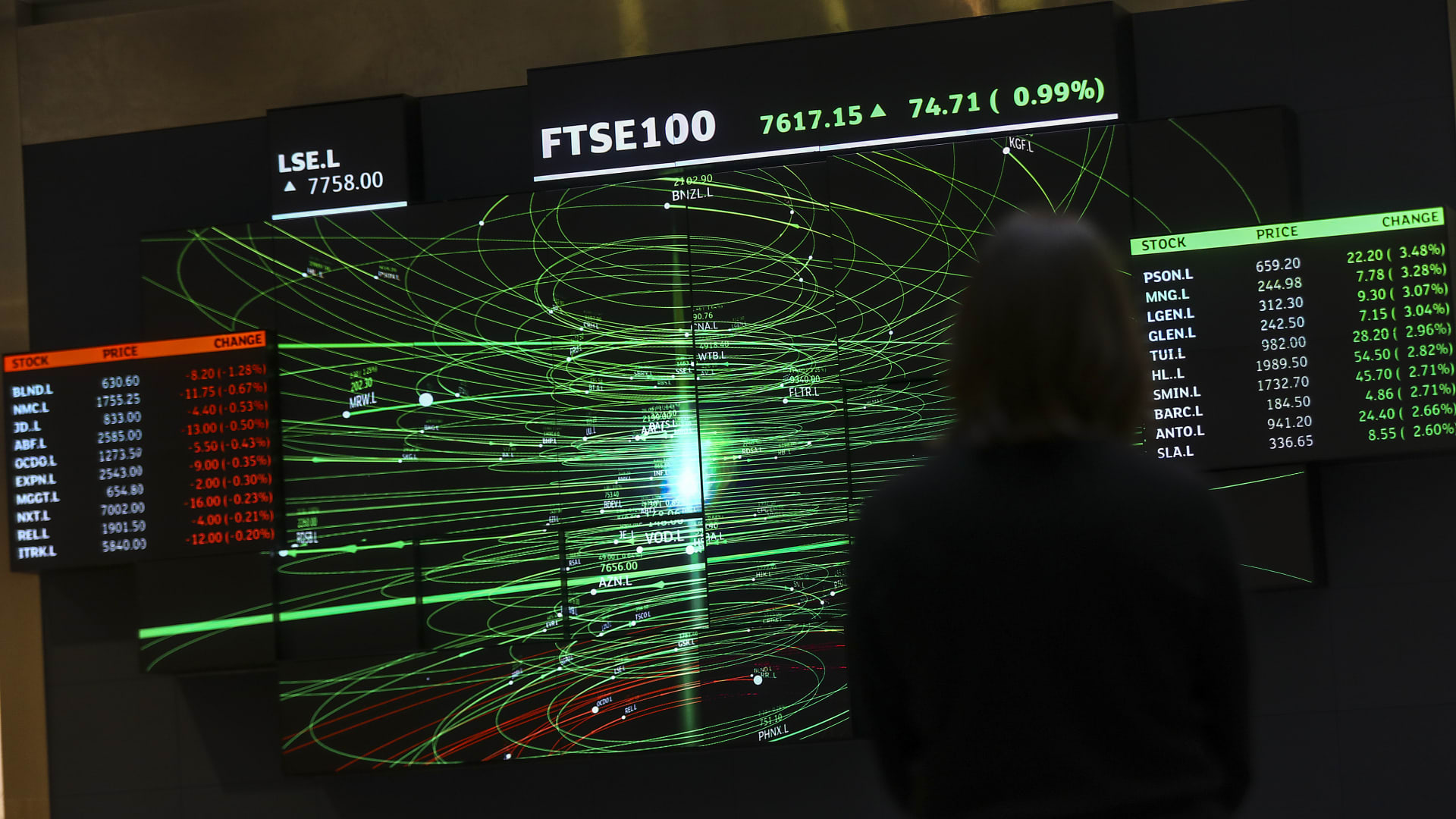Biggest risk for UK stocks right now? There’s no recession, strategist says

An employee views a FTSE share index board in the atrium of the London Stock Exchange Group Plc’s offices in London, U.K., on Thursday, Jan. 2, 2020.
Bloomberg | Bloomberg | Getty Images
LONDON — The biggest risk to the U.K. stock market is avoiding a widely anticipated recession, according to Roger Lee, head of U.K. equity strategy at Investec.
The Bank of England has projected that the U.K. has already entered its longest recession on record. Economists broadly expect the country’s economic performance to be among the worst in the developed world over the next two years.
“The biggest risk facing U.K. equities at the moment is that we don’t go into recession, and that is probably the first time in 25 years I have said that,” Lee told CNBC’s “Squawk Box Europe” on Wednesday. “Because the market is so certain that we are going into a recession and yet…some of the economic indicators, some of the company reporting, would suggest that we are not.”
Most importantly, he noted, the U.K. labor market has remained robust. The unemployment rate sat at 3.7% for August to October 2022, while the number of vacancies remains at historically high levels despite five successive quarterly declines, according to the Office for National Statistics.
“Since the post-war period, every single recession in the U.K. or the U.S. has been associated with a significant pickup in unemployment, and we are just not seeing that,” Lee added.
FTSE at a ‘significant discount’
Britain’s FTSE 100 index has underperformed most developed market counterparts for many years, particularly the S&P 500, as tech and growth stocks ran rampant.
Many analysts believe Britain’s blue chip index remains undervalued, even after slightly closing the gap following a disastrous 2022 for Wall Street. The FTSE 100 now sits only around 2% off an all-time high.
Lee suggested that the persistent undervaluation of the FTSE, compared to the S&P 500, was owed to a combination of U.K. stocks needing to appreciate and U.S. markets having further to retreat.
“Clearly the FTSE is trading at a significant discount not only to global indices but also to its historic average. The FTSE is currently trading at around 10x prospective P/E (price-to-earnings ratio) — its 20-year average is closer to 12.5x P/E, so we don’t need anything significant to change particularly,” he said.
Price-to-earnings ratio determines whether a company is overvalued or undervalued by measuring its current share price relative to its earnings per share.
“We just need some of that valuation discount that has built up over the last three years to start to dissipate, and I am not suggesting the FTSE is going up by 25%, just to be absolutely clear, but the idea that there is a potential rerating of the FTSE is quite clear and is quite possible,” Lee added.
“The flipside of that is, of course, the risk to the S&P — particularly if interest rates are higher for longer — it hasn’t gone away.”
Higher interest rates are negative for growth-oriented stocks as the value of their future earnings is diminished in today’s money. Growth stocks contribute a far higher proportion of the U.S. market than in the U.K.
The FTSE is heavily weighted towards consumer staples, financials, industrials and materials, and is known for its high share of companies that pay dividends to shareholders.
“The FTSE does get a lot of bad press and perhaps some justification given its composition, but here’s another stat for you: if the FTSE paid away the yield the same as the MSCI World then the FTSE now would be trading well over 9,000 points,” Lee contended.
“The FTSE is a big distributor of income, and that clearly costs it index points every single year.”









